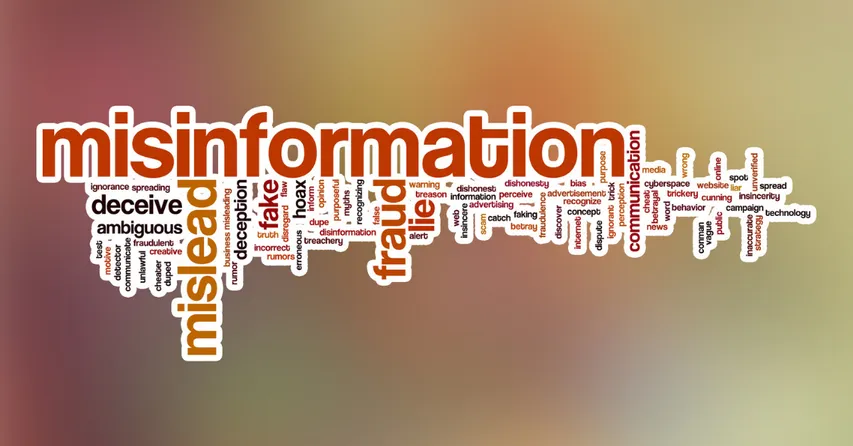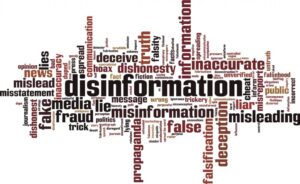
Misinformation and disinformation have become significant threats to public trust and brand reputation, as social media and digital platforms accelerate the spread of false and misleading content. As organisations, governments, and brands sail these challenges, the task of maintaining credibility and trust has grown more complex. With global estimates placing the cost of fake news at around $78 billion annually, the financial and reputational risks posed by misinformation are more critical than ever.
A 2023 Edelman Trust Barometer highlighted a staggering 57 percent of people globally struggle to differentiate between true and false information, undermining trust—a cornerstone of successful businesses and democratic institutions. With digital media’s far-reaching impact, a 2022 Deloitte study reported that 87 percent of executives acknowledge the growing difficulty in managing reputational risk.
To explore how brands can navigate these complexities, the Peer Public Relations (PR) Conference held a critical session on Crisis Communication in the Age of Disinformation and Misinformation. The event, which took place in Lagos recently, brought together over 100 participants from Nigeria and the United Kingdom (U.K.). Organised by Master of Science (MSc) students at the School of Media and Communication, Pan-Atlantic University, the conference welcomed prominent Nigerian communication experts, such as Dr. Obinna Chima of Thisday, Mr. Keni Akintoye, Chief Executive Officer (CEO) of KT Communication, and Barr. Ime Asibong, Company Secretary at Ibom Power.
Among the various thought-provoking discussions was a session by Mr. Akintoye, who shared actionable insights on how brands can safeguard their reputation and combat the negative impact of misinformation.
Key Takeaways from Mr. Akintoye’s Session on Brand Protection
Mr. Akintoye focused on the immense financial and reputational damage that misinformation can cause, pointing out that brands are at risk of losing both revenue and long-standing trust due to the rapid spread of false information. In other to address these threats, he suggested several strategies that can help brands protect their reputation and maintain consumer confidence.
Below are a few strategies highlighted by Mr. Akintoye.
Leadership and Image Management
Mr. Akintoye emphasised the need for brands to bolster their visibility and maintain their core identity, particularly during times of crisis. The strength of a brand’s leadership and its image plays a significant role in reassuring customers and the public that the brand remains reliable and trustworthy, even in the face of external challenges.
Building a Robust Online Reputation
In the digital age, a brand’s online presence is paramount. He pointed out that customer satisfaction and service quality are critical to fortifying a brand’s reputation. In offering excellent customer service and building positive online sentiment, brands can create a foundation of goodwill that helps them weather misinformation storms.
Embracing New Tools and Technologies
Leveraging new technology is key to staying ahead of the misinformation curve. Mr. Akintoye advocated for using tools such as SquirrelPR, a public relations management software, to monitor and manage media discussions. With these technologies, brands can track online sentiment, quickly address any disinformation, and ensure that their messaging remains consistent and accurate.
Establish a Crisis Communication Plan
One of the most critical steps brands can take is to have a clear and actionable crisis communication plan in place. He suggested that brands partner with communication professionals and PR agencies to develop rapid response strategies specifically for addressing misinformation. Having a pre-established plan allows brands to respond quickly and decisively, preventing the situation from escalating.
Inform and Empower Customers
Customer education was another crucial area of focus. Mr. Akintoye stressed that empowering customers with accurate information is vital for building trust. In providing clear, factual content and addressing any misinformation head-on, brands can help their audience make informed decisions and differentiate between genuine and false claims.
Reinforce Brand Values
A brand’s values and identity are its strongest defences against misinformation. He suggested that companies focus on developing a robust brand identity built on trust, quality, and consistency. Brands with a strong identity are more resilient in the face of misinformation and better able to maintain consumer loyalty.
The Peer PR Conference stressed the increasing importance of adopting protective measures against misinformation and disinformation in the digital age. As digital media continues to evolve, brands must adapt by integrating innovative technologies, strengthening their crisis communication strategies, and building long-lasting relationships with their customers.
For brands, the key takeaway is clear: the foundation of trust is fragile, and once broken, it is difficult to rebuild. In proactively addressing the risks posed by disinformation and misinformation, brands can safeguard their reputation, maintain consumer confidence, and continue to thrive in an increasingly complex media environment. The insights shared at the Peer PR Conference provide invaluable guidance for companies looking to sail the challenges of today’s digital age and emerge stronger on the other side.
This event offers a timely reminder of the crucial role communication professionals play in shaping brand perception and protecting organisational integrity in the face of modern challenges.
Discover more from Astudity Limited
Subscribe to get the latest posts sent to your email.